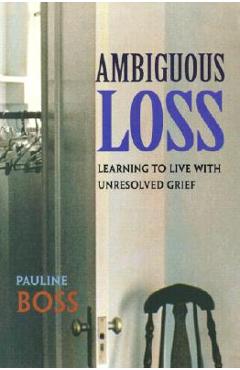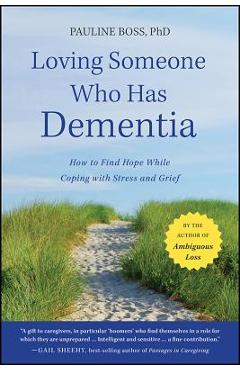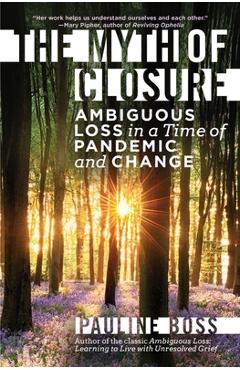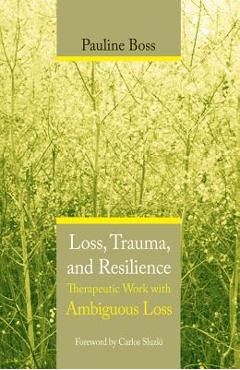Ambiguous Loss: Learning to Live with Unresolved Grief - Pauline Boss

Detalii Ambiguous Loss: Learning to Live
libris.ro
177.34 Lei
197.05 Lei
Self-help
Pauline Boss
Ambiguous Loss: Learning to Live - Disponibil la libris.ro
Pe YEO găsești Ambiguous Loss: Learning to Live de la Pauline Boss, în categoria Self-help.
Indiferent de nevoile tale, Ambiguous Loss: Learning to Live with Unresolved Grief - Pauline Boss din categoria Self-help îți poate aduce un echilibru perfect între calitate și preț, cu avantaje practice și moderne.
Preț: 177.34 Lei
Caracteristicile produsului Ambiguous Loss: Learning to Live
Comandă Ambiguous Loss: Learning to Live Online, Simplu și Rapid
Prin intermediul platformei YEO, poți comanda Ambiguous Loss: Learning to Live de la libris.ro rapid și în siguranță. Bucură-te de o experiență de cumpărături online optimizată și descoperă cele mai bune oferte actualizate constant.
Descriere magazin:
In this original and humane account of the ravages of uncertainty faced by those who lose a loved one, the author draws on her research and clinical experience to suggest strategies that can cushion the pain, and offers heartening narratives of those who cope with ambiguous losses and manage to move on. When a loved one dies we mourn our loss. We take comfort in the rituals that mark the passing, and we turn to those around us for support. But what happens when there is no closure, when a family member or a friend who may be still alive is lost to us nonetheless? How, for example, does the mother whose soldier son is missing in action, or the family of an Alzheimer\'s patient who is suffering from severe dementia, deal with the uncertainty surrounding this kind of loss? In this sensitive and lucid account, Pauline Boss explains that, all too often, those confronted with such ambiguous loss fluctuate between hope and hopelessness. Suffered too long, these emotions can deaden feeling and make it impossible for people to move on with their lives. Yet the central message of this book is that they can move on. Drawing on her research and clinical experience, Boss suggests strategies that can cushion the pain and help families come to terms with their grief. Her work features the heartening narratives of those who cope with ambiguous loss and manage to leave their sadness behind, including those who have lost family members to divorce, immigration, adoption, chronic mental illness, and brain injury. With its message of hope, this eloquent book offers guidance and understanding to those struggling to regain their lives.

Produse asemănătoare
Produse marca Pauline Boss

Loving Someone Who Has Dementia: How to Find Hope While Coping with Stress and Grief - Pauline Boss
![]() libris.ro
libris.ro
Actualizat in 28/10/2025
117.18 Lei

Ambiguous Loss: Learning to Live with Unresolved Grief - Pauline Boss
![]() libris.ro
libris.ro
Actualizat in 05/06/2025
177.34 Lei

The Myth of Closure: Ambiguous Loss in a Time of Pandemic and Change - Pauline Boss
![]() libris.ro
libris.ro
Actualizat in 05/06/2025
138.64 Lei

Loss, Trauma, and Resilience: Therapeutic Work with Ambiguous Loss - Pauline Boss
![]() libris.ro
libris.ro
Actualizat in 25/10/2024
217 Lei